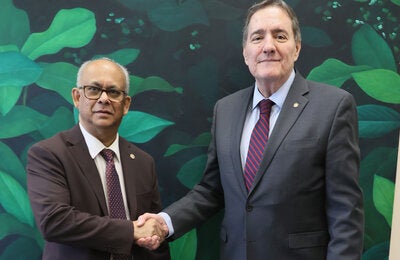
Washington D.C. 13 December 2022 – The implementation of the Pan American Health Organization’s (PAHO) Elimination Initiative must be accelerated to get back on track towards the 2030 goals in the Americas, concluded regional experts at the latest meeting of the Strategic and Technical Advisory Group on Disease Elimination (STAG DE).
The meeting, held in Atlanta, USA, on 29-30 November brought together public health experts in policy, primary health care, epidemiology, research and infectious disease management to discuss the status of the initiative, which aims to rid the Americas of 35 communicable diseases and related conditions by 2030.
“Communicable diseases know no borders, which is why a cohesive, regional effort towards disease elimination is so crucial, especially as we get into the post pandemic phase” Dr. Massimo Ghidinelli, Director Ad Interim for Communicable Diseases and Environmental Determinants of Health at PAHO said. “Over the past 3 years, we have seen how countries in our region have worked together to tackle the COVID-19 pandemic and we need to build on this momentum to get the Elimination Initiative back on track.”
To recover gains lost during the pandemic and contribute towards the timely achievement of Sustainable Development Goal 3, the Strategic and Technical Advisory Group advised PAHO on the following steps:
- Advocate for disease elimination at country, regional and global levels;
- Improve the quality of national and subnational data;
- Integrate elimination endeavors into established services designed to address the needs of populations;
- Engage academic, research institutions, governments and civil society to better inform the development of elimination tools; and
- Document the implementation of the initiative to help support resource mobilization efforts.
Elimination Initiative
The Elimination initiative is a major strategic and political opportunity for governments, partners, civil society, academia, the private sector and communities to eliminate more than 35 communicable diseases and related conditions in the Americas by 2030.
The Elimination Initiative sets out four strategic lines of action: integration of health systems and services to facilitate a comprehensive approach to multiple diseases, particularly at the primary care level; strengthening of disease surveillance and information systems to monitor progress toward elimination; addressing social and environmental determinants of health; and strengthening governance, financing, and leadership in ministries of health.
The initiative recognizes that disease elimination does not depend solely on the health sector but requires the engagement of other actors, both inside and outside government, with clear definition of roles and responsibilities.



